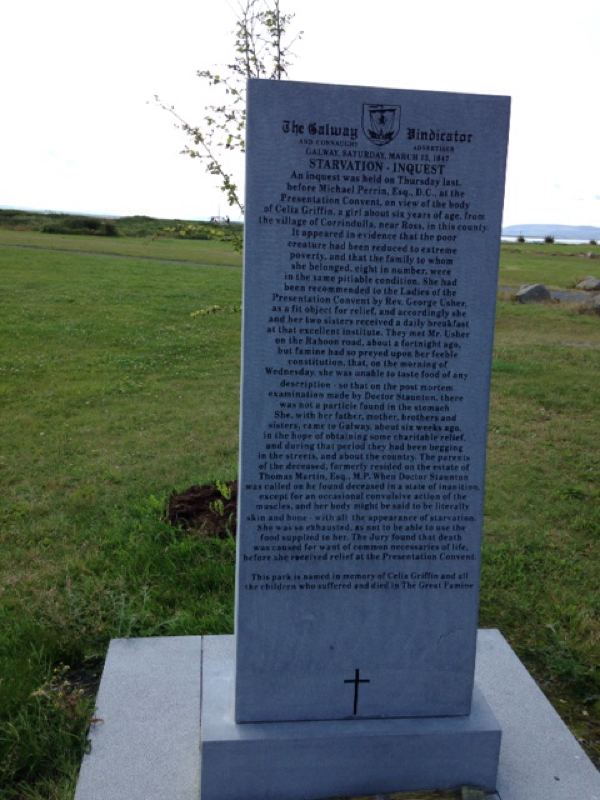|
I am back on this side of the Atlantic, hoping that coffee and exercise will overcome the jet lag from yesterday's (Thursday's) flight from Shannon, Ireland. I have learned one thing: it is better flying the red eye as we did going over, when there is the probability of sleep, than leaving at noon for a boring seven hour afternoon that is just beginning again when you land. It is "Morality Friday" here at the blog, though I noticed with some embarrassment that I have not been home or settled enough to blog on a Friday in some time. I was fortunate enough in Ireland to have excellent wi-fi in all the places I stayed, so I did have regular updates from all my usual news and church sources. There is, in some quarters, great alarm about trends in American society, and it is true enough that some remarkable changes have occurred in the U.S. in matters of racial and sexual attitudes. If I understand Donald Trump correctly, not always an easy task, there is fear in some quarters that Christianity is under great siege. The Chesterton in me tends to think the true danger to Christianity is more a matter of great indifference, but in some quarters there is acute stress about the ACA mandate and the Little Sisters of the Poor, for example. In my own state of Florida there is talk of the legislature considering a "pastor's bill of rights," so concerned are some. The biggest trap we can fall into is too easily accepting two questionable premises: (1) the present age is uniquely evil, and (2) the moral issues of present day discussion represent the apex of western civilization. Without denying the importance of the questions at hand, some historical perspective might be useful in giving us a bigger picture of our moral landscape, and perhaps some insight into what Pope Francis is trying to teach through his recent encyclical. On Wednesday, our last full day in Ireland, my wife and I walked from Sand Hill into Galway. Sand Hill is a bit of a surprise, something of an Oceanside amusement center; we parked on the street in front of a giant Ferris wheel. It is a town of pubs, amusement rides, arcades, toney condos and B&B's; the kind of place you stop for fudge and forbidden foods. Yes, the waters of Galway Bay are a bit cold and unforgiving, but there is no place more romantic to hold hands and walk with your best gal than along the wide promenade at water's edge that eventually leads to Galway's splendid Cathedral. It was on the cusp of Sand Hill and Galway that we came upon it. A large but simple memorial stone tells the story of the little girl for whom this stretch of beach is dedicated. She was brought for medical assistance to social services, but she was beyond help--her starvation was too far advanced, and this youngster, like thousands of her peers, died far before their times in the late 1840's of what can only be described as a calculated, engineered act of sinful omission. I learned early in my trip that you don't speak of "The Potato Famine," any more than you would speak of American slavery as an intense indenture. There had been periods of crop failure and chronic hunger long before the intense suffering of the mid-1800's in Ireland. A century before, the churchman and bitter satirist Jonathan Swift had attempted to draw attention to the plight of the Irish with his outlandish essay, "A Modest Proposal," which called for the breeding of children as food products. But in the collective memory of Ireland to this day, what we learned in school as "The Potato Famine" was a government engineered agricultural policy that favored business interests at the expense of intense deprivation across the Irish isle. For those who wish to pursue this shameful episode of inhumanity, I recommend "The Graves Are Walking," which opens with an unimaginable episode of neighbors returning corpses dug up by scavenging dogs. Irish starvation was not a random act of violence. It occurred on the watch of the world's most powerful nation, Great Britain, in the days of the famous prime ministers Disraeli and Gladstone. At a very basic level the management of a national/colonial policy emphasized business interest over human life. It would be a wonderful thing to be able to say that the Irish starving was an event of the past from which we have learned to deal with smaller nations in fair and equitable ways in matters of quality of life and distribution of natural resources, particularly food. But only the most morally obtuse would claim that impartial international fair play is the coinage of the planet. This, I think, is what Francis is driving at in his writing, preaching, and traveling: the heart of morality is the mindset of human care. Decisions of state, business, science, and trade are to be governed by God's stance toward every human being: "the very hairs of your head are numbered." Theologians speak of a hierarchy of doctrine, so to speak, an attempt to understand the priorities of the mind of God. Nowhere is a discussion of priorities more necessary than in the scope of moral theology. A lot of ink has been spilled within the church and elsewhere over matters such as medical insurance plans and Catholic institutions. Francis by contrast is laboring on behalf of those who never see doctors or drink clean waters, and he challenges the Church and society to reorder the menu of God's generous table,
0 Comments
Leave a Reply. |
For Folks Who Can't Read Everything
Archives
May 2024
|

 RSS Feed
RSS Feed